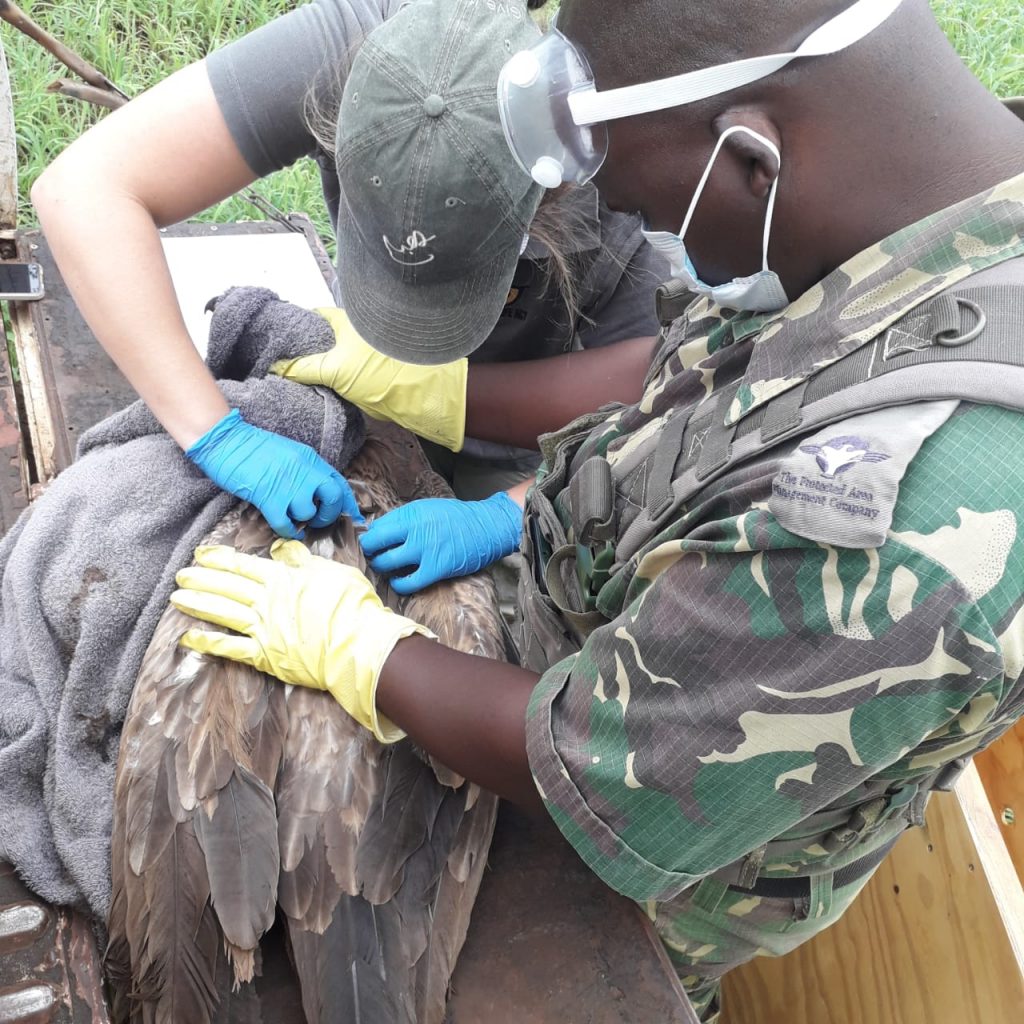So far 151 vultures have been poisoned in the Zululand region in 2022. (Photo: Anel Olivier)
Forty-seven white-backed vultures and five tawny eagles have been poisoned in the Zululand region of KwaZulu-Natal in another mass killing apparently for the traditional medicine market.
The conservation nonprofit, Wildlife ACT, discovered the poisoned vultures during a routine vulture surveillance expedition on 18 December.
Of the 47 vultures, 35 had their heads removed.
A criminal case has been opened and conservation officials have decontaminated the area to prevent further fatalities.
Anel Olivier, the vulture conservation programme manager at Wildlife ACT, said in a statement that they were “extremely saddened by the discovery of this recent mass vulture poisoning. Vultures are a vital component of our ecosystem’s functionality, yet we have seen a drastic decline of the local breeding population over the past few years due to poisoning.”
Conservationists recovered five white-backed vultures that had not died.
“The five live individuals received initial treatment at the scene before being transported to a permitted rehabilitation facility for further treatment,” reads the statement.
In response to the recent killings, Inkosi Gumbi, leader of the local traditional authority, told Wildlife ACT: “The loss of so many vultures from this area is extremely sad and it affects the health of our ecosystem and the livelihoods of our people. As the Gumbi community, we are working hard to establish a conservation-based economy, and illegal activity such as this has a large impact.”
Wildlife ACT said the recent mass killing highlights the precarious situation of vultures.
 (Photo: Meiring Prinsloo)
(Photo: Meiring Prinsloo)
The nonprofit’s communication officer, Megan Whittington, said the organisation had responded to 151 poisoned vultures this year in the Zululand region of KwaZulu-Natal.
Mammal and bird scientist Brent Coverdale, of the Ezemvelo KZN Wildlife, said the poisonings are “unsustainable and will lead to the demise of vultures within South Africa and simultaneously, devastating environmental consequences, and the loss of cultural heritage”.
Poisoning is the primary threat facing vultures in KwaZulu-Natal, Wildlife ACT said last year on the release of three rehabilitated vultures after they were poisoned.
Vultures are targeted for their body parts, which are sought after in the traditional medicine trade.
In June 2019, seven critically endangered African white-backed, three endangered lappet-faced and one critically endangered white-headed vultures were poisoned in KwaZulu-Natal.
Olivier urged members of the public to respond to the draft Biodiversity Management Plan that is open for comment until 2 January next year. The department of forestry, fisheries and environment released the biodiversity plan for South African vultures earlier this month.
Conservation agencies and the draft plan acknowledge traditional healing associations as a critical stakeholder in the conservation of vultures.
The Wildlife ACT emphasised the important role of all stakeholders to mitigate their impact on wildlife. “This includes the conversion to lead free ammunition within the hunting industry, the erection of electrical infrastructure in areas not considered sensitive to vultures and the halting of the illegal use of agricultural pesticides to poison wildlife,” Wildlife ACT in its statement.
To comment on the Biodiversity Management Plan email [email protected].